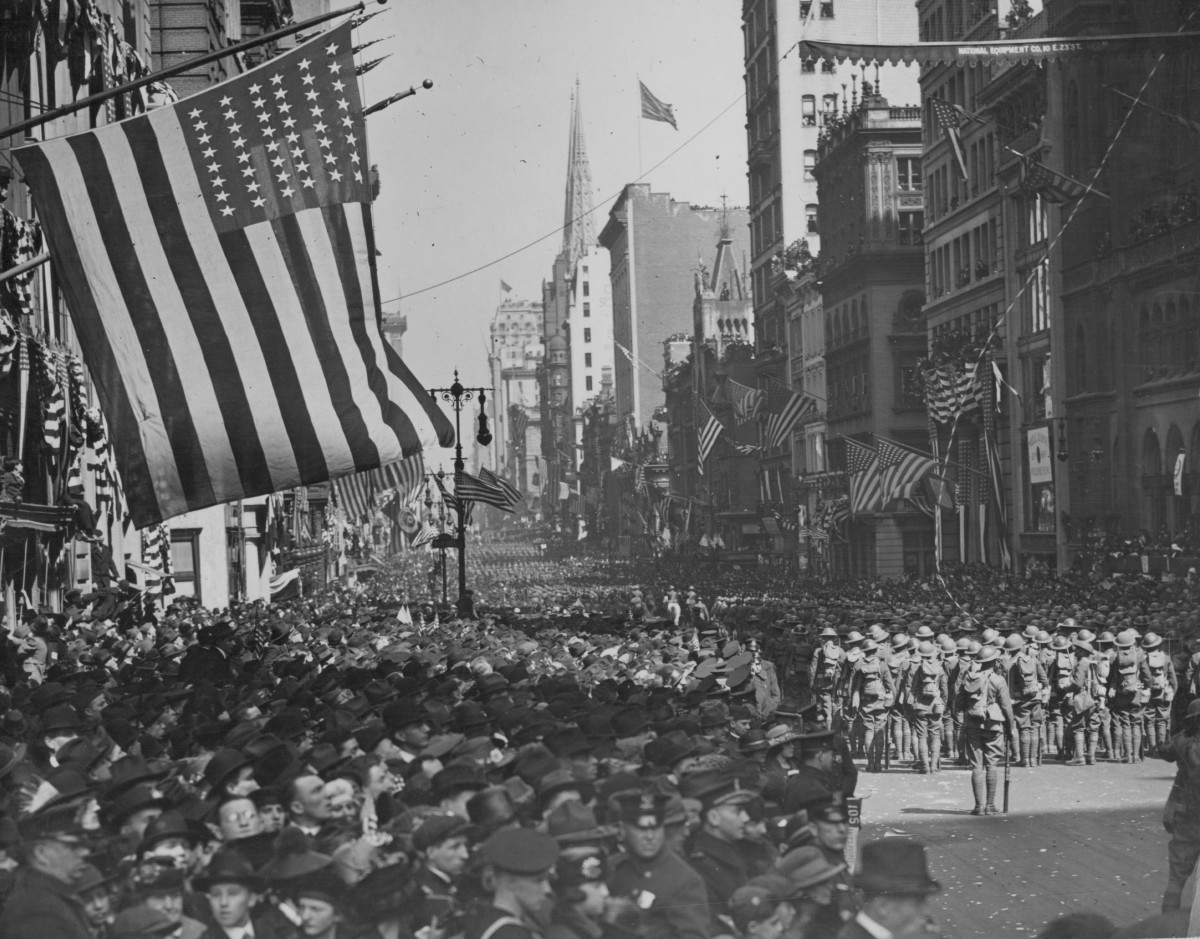Both sides knew that the entry of the United States, with its fresh forces and vast industrial capacity, would be telling, were the war to last another year. But the Central Powers anticipated victory before American forces could be in the field.
The French were crumbling, the burden of fighting had fallen increasingly on the British during 1917, and the Allies attempted “the one big push” on the western front while they still could, in the spring of 1917. The British were successful at Arras, the Canadians at Vimy Ridge, but the French were denied the easy victory promised them by their generals in the ravines of the Aisne, and their exhausted troops mutinied. To contain the Germans, the British general, Sir Douglas Haig (1861-1928), threw his troops into nine successive attacks in waterlogged terrain at Ypres from July 31 to November 15.
Except for the Canadian capture of Passchendaele, the British line gained only nine thousand yards at the cost of nearly half a million casualties. Allied morale was low as the death rate soared and British military leadership proved inept. The establishment of a Supreme War Council in late November to unify Allied strategy did little to bring order to a chaotic and increasingly divisive situation.
Thus early in 1918 Germany decided to throw everything it had against the Allies on the western front before the American troops arrived in force. Germany now had troops released from the eastern front. General Ludendorff turned to massive application of the barrage, in which a long discharge of artillery would flatten out a section of enemy defenses and the no-man’s land in front of the troops, forcing the enemy to retire to rear trenches.
The initial barrage would include gas shells to knock out enemy observation posts and guns. A rolling barrage would ensue, advancing one kilometer an hour, with infantry following behind. Used on the Somme in combination with dense fog, this tactic had helped the Germans to pierce the British line along a 41-mile front, capture 80,000 prisoners, inflict 200,000 casualties, and approach Amiens, a major communications link. In the midst of this crisis General Foch, instructed to coordinate the Allied armies, became commander in chief.
Slowly the tide turned. The Germans sustained heavy losses as they advanced, and they lacked reserves. The French and British held the Germans after an advance on the Lys River. Ludendorff secretly shifted his troops and pressed on the Marne to within forty miles of Paris, where American and French troops held the south bank of the Marne at Chateau-Thierry on June 1-4.
Ludendorff attacked along the Marne again in July, but by then he had lost 800,000 men, and British, French, and American troops drove the Germans back. On August 8 a surprise attack by the British, using 450 tanks, broke through the German lines near Amiens, and German units refused orders. Then, from September 26 to November 11, a Franco-British attack on the West and a Franco-American attack on the South nearly closed the Germans in a pincers in the Argonne forest and along the Meuse.
Ludendorff’s troops were in slow and generally orderly retreat, but suffering from low morale and without supplies, and he was determined that Germany itself should not be invaded. On September 29 he asked for an armistice; the German chancellor resigned the following day, and his successor appealed directly to President Wilson to call a peace conference on the basis of Wilson’s Fourteen Points. The Allies were reluctant to accept these conditions, and Wilson hinted that the Americans would conclude a separate peace.
On October 27 the Austro-Hungarian Empire, which was breaking up, also asked for an armistice. On November 3 mutiny in the German fleet at Kiel and in much of northwest Germany, and on November 7 revolution in Bavaria, made it impossible to continue. Ludendorff had been dismissed, and William II abdicated on November 9 and fled to Holland. Negotiations that had begun on November 8 were concluded at 5:00 A.M. on November 11, when the armistice was signed. All was, at last, quiet on the western front.

